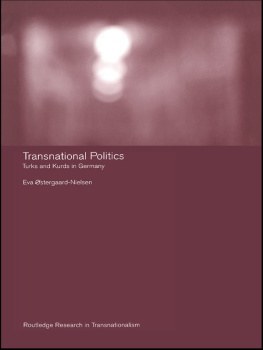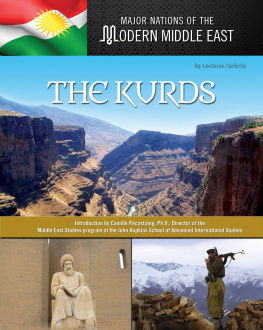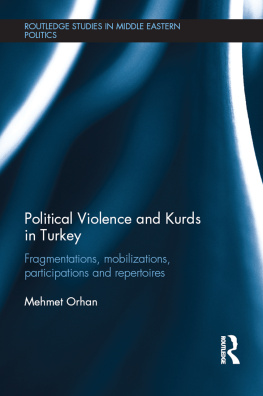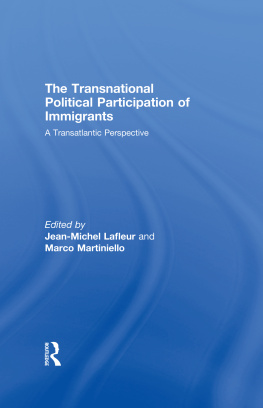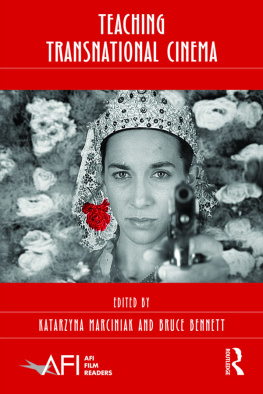Transnational Politics
Modern communications make it easier for all types of migrants to stay in touch with their country of origin meaning that migrants transnational engagement is an increasingly important and relevant topic. Transnational Politics shows how the politics of one country, Turkey, plays itself out in another, Germany, through the presence and engagement of migrants and refugees.
This book offers a unique case study of transnational political engagement of Turkish and Kurdish migrants and refugees in Germany and the political impact of these at national and international levels. Turkish and Kurdish organizations in Germany not only mobilize in relation to immigrant political issues of equal rights, discrimination, and citizenship in Germany, but also in relation to the domestic and foreign political situation in Turkey. In this way they become a linkage group between Turkey and Germany.
The case of migrants and refugees from Turkey to Germany is in many ways paradigmatic for how migrants transnational practices occur and are perceived in a European context. This book will be of value to readers with an interest in the politics of international migration and migrant transnationalism and in the ways in which migrants themselves challenge and contribute to processes of democratization in both their country of origin and settlement.
Eva stergaard-Nielsen is Marie Curie Research Fellow at the Migration Research Group, Department of Geography, Autonomous University of Barcelona. She has published on the subject of diasporas and the political participation of migrants, notably in Global Networks: A Journal of Transnational Affairs and Sais Review: A Journal of International Affairs.
Transnationalism
Edited by Steven Vertovec
University of Oxford
Transnationalism broadly refers to multiple ties and interactions linking people or institutions across the borders of nation states. Today, myriad systems of relationship, exchange, and mobility function intensively and in real time while being spread across the world. New technologies, especially involving telecommunications, serve to connect such networks. Despite great distances and notwithstanding the presence of international borders (and all the laws, regulations, and national narratives they represent), many forms of association have been globally intensified and how take place paradoxically in a planet-spanning yet common arena of activity. In some instances, transnational forms and processes serve to speed-up or exacerbate historical patterns of activity, in others they represent arguably new forms of human interaction. Transnational practices and their consequent configurations of power are shaping the world of the twenty-first century.
This book forms part of a series of volumes concerned with describing and analysing a range of phenomena surrounding this field. Serving to ground theory and research on globalization, the Routledge book series on Transnationalism offers the latest empirical studies and ground-breaking theoretical works on contemporary socio-economic, political, and cultural processes which span international boundaries. Contributions to the series are drawn from Sociology, Economics, Anthropology, Politics, Geography, International Relations, Business Studies, and Cultural Studies.
The series is associated with the Transnational Communities Research Programme of the Economic and Social Research Council (see http://www.transcomm.ox.ac.uk).
The series consists of two strands: Transnationalism aims to address the needs of students and teachers and these titles will be published in hardback and paperback. Titles include:
Culture and Politics in the Information Age
A new politics?
Edited by Frank Webster
Transnational Democracy
Political spaces and border crossings
Edited by James Anderson
Routledge Research in Transnationalism is a forum for innovative new research intended for a high-level specialist readership, and the titles will be available in hardback only. Titles include:
- New Transnational Social Spaces
International migration and transnational companies in the early 21st century
Edited by Ludger Pries
- Transnational Muslim Politics
Reimagining the Umma
Peter G. Mandaville
- New Approaches to Migration?
Transnational communities and the transformation of home
Edited by Nadje Al-Ali and Khalid Koser
- Work and Migration
Life and livelihoods in a globalizing world
Edited by Ninna Nyberg Sorensen and Karen Fog Olwig
- Communities across Borders
New immigrants and transnational cultures
Edited by Paul Kennedy and Victor Roudometof
- Transnational Spaces
Edited by Peter Jackson, Phil Crang and Claire Dwyer
- Diaspora and Communication
Mapping the globe
Edited by Karim H.Karim
- Transnational Politics
Turks and Kurds in Germany
Eva stergaard-Nielsen
First published 2003
by Routledge
11 New Fetter Lane, London EC4P 4EE
Simultaneously published in the USA and Canada
by Routledge
29 West 35th Street, New York, NY 10001
Routledge is an imprint of the Taylor & Francis Group
This edition published in the Taylor & Francis e-Library, 2004.
2003 Eva stergaard-Nielsen
All rights reserved. No part of this book may be reprinted or reproduced or utilized in any form or by any electronic, mechanical, or other means, now known or hereafter invented, including photocopying and recording, or in any information storage or retrieval system, without permission in writing from the publishers.
British Library Cataloguing in Publication Data
A catalogue record for this book is available from the British Library
Library of Congress Cataloging in Publication Data
stergaard-Nielsen, Eva, 1969
Transnational politics: Turks and Kurds in Germany/Eva stergaard-Nielsen.
p. cm.
Includes bibliographical references and index.
1. TurksGermanySocial conditions. 2. KurdsGermanySocial conditions. 3. GermanyEthnic relations. 4. Marginality, SocialGermany. 5. Transnationalism. 6. GermanyEmigration and immigration. I. Title.
DD78.T87 O88 2003
305.8943504309049dc21 2002068197
ISBN 0-203-36162-8 Master e-book ISBN
ISBN 0-203-37419-3 (Adobe eReader Format)
ISBN 0-415-26586-X (Print Edition)
For Andrea and Lukas
Acknowledgements
My first thank you goes to the people who helped me embark on this research in the first place. I am particularly indebted to my former supervisors William Wallace at the London School of Economics and Philip Robins at St Antonys College, Oxford University, for their continuous support, encouragement, and valuable feedback on earlier drafts of this manuscript. Also, Efhitia Voutira, from the Refugees Studies Programme at Oxford University, served as a great inspiration in my first years of research.
The empirical fieldwork would not have been possible without the generous assistance of members of the Turkish and Kurdish communities there. Leaders and members of migrant organizations in Germany and policy makers in both Germany and Turkey generously took time off to answer my many questions and guide me through meetings and events. Three Turkish and Kurdish families in Germany opened their homes to me, and kindly let me stay with them during my fieldwork. They, and other friends, facilitated contacts for interviews and access to political meetings. I thank the family Demirbilek-Kksal, family Kararhasan, Eren nsal, and Arif Sentrk. In Ankara, I want to especially thank Orhan Isik and his family for helping me with accommodation and research and my general introduction to the Turkish way of things.

